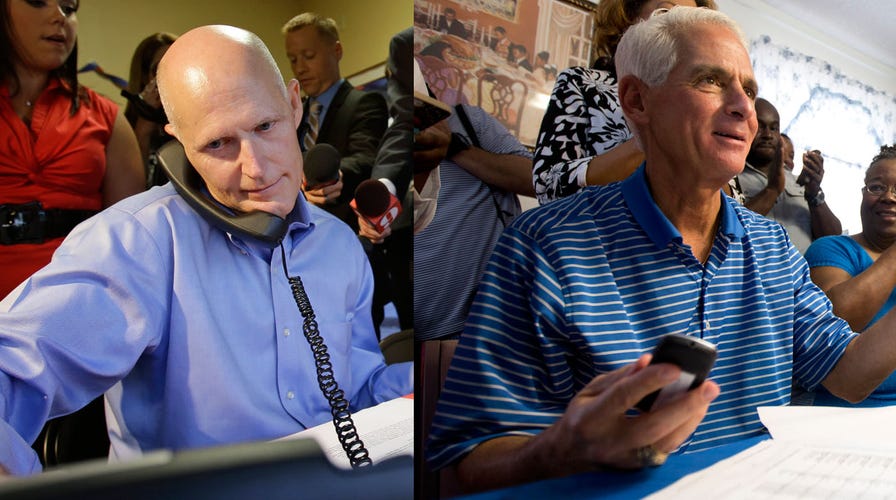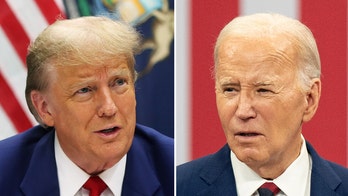Florida's gubernatorial race and the Latino vote
With Florida Gov. Rick Scott and former governor Charlie Crist virtually tied, Hispanic voters could determine who wins the state’s gubernatorial .
With Florida Gov. Rick Scott and former governor Charlie Crist virtually tied, Hispanic voters in Palm Beach, Broward and Miami-Dade counties, as well as the crucial I-4 corridor in central Florida, could determine who wins the state’s gubernatorial race. That’s why both candidates – one Republican, one Independent – picked Hispanic running mates, according to state Republican and Democratic leaders.
“I believe having two Latino candidates for lieutenant governor on the ballot will motivate Hispanic voters to the polls,” said Nelson Diaz, chairman of the Miami-Dade Republican Executive Committee. “It’s a good sign that both Gov. Scott and Crist respect the Hispanic community.”
Angelo Castillo, a Democratic city commissioner from Pembroke Pines, Florida, said it speaks volumes about the importance of the Hispanic vote in this election.
“Scott and Crist have realized they need to capture as many Hispanic voters as they can,” Castillo said.
In February, Scott, a Republican, made Cuban-American politician Carlos Lopez-Cantera the first Hispanic lieutenant governor in state history. He had previously served an eight-year term in the state Legislature, including a stint as house majority leader, and Miami-Dade Property Appraiser.
Experts say Lopez-Cantera, 40, helps Scott solidify support with Cuban-American voters in Miami-Dade, the largest Hispanic base in Florida. Four years ago, Scott narrowly won the Hispanic vote by a 50 to 48 percent margin over then-opponent Alex Sink, largely due to his securing 68 percent of the Cuban American electorate in Miami-Dade.
“Lopez-Cantera is very popular and has name recognition,” Diaz says. “As a son of the Cuban exile community, it bodes well for him and Gov. Scott since higher numbers of Cuban-Americans vote in the midterm election than in presidential years.”
To counter Scott’s selection, Crist announced in July that Miami-Dade Democratic Party chief and state party vice-chairwoman Annette Taddeo-Goldstein was his pick for lieutenant governor.
A Colombian-American businesswoman who started her own translation company, Taddeo-Goldstein made two unsuccessful runs for political office before her ascent in the Democratic Party. She lost to Congresswoman Illeana Ros-Lehtinen in 2008, as well as a bid for a Miami-Dade County Commission seat in 2010.
Two years later, Taddeo-Goldstein played an instrumental role in helping the Obama campaign win the Hispanic vote that gave the president a narrow victory in Florida over Republican nominee Mitt Romney.
Taddeo-Goldstein has also made several bold moves to increase the Democrats’ profile among Hispanics. For instance, she opened a party office in Little Havana, a traditionally Cuban-American Republican stronghold. To promote a higher minimum wage, she and a state lawmaker pretended to live for a week on minimum wage. To woo voter party switchers, she and former state Rep. Ana Rivas Logan (who became a Democrat) stood outside the elections office and destroyed Rivas Logan's Republican voter registration card.
Antics aside, Taddeo-Goldstein is a candidate who appeals to non-Cuban Hispanic voters, a majority of whom are Democrats, said Darren Soto, a state senator from Orlando. Soto’s district is located in the crucial I-4 corridor that has seen an explosion of Hispanic voters registering as Democrats. Three weeks ago, he joined Taddeo-Goldstein at the grand opening of the Crist campaign’s Orlando office.
“Every time Annette shares her story, talking about how difficult it was for her in college because Spanish was her first language, she connects with people,” Soto said. “Her struggle appeals to people from Puerto Rico and recent immigrants from Central and South America who made central Florida their new home.”
Having Taddeo-Goldstein on the Democratic ticket increases his party’s chances of reclaiming the governor’s mansion, Soto insists. Two separate polls published recently by Survey USA and the New York Times support the senator’s claims. Both found that 49 percent of Hispanics favored the former governor to the current one, although their enthusiasm for Crist is not as high as it was for Obama in 2012, when the president captured 60 percent of the Latino vote.
Moreover, Crist’s popularity among Cuban-American voters plummeted during the first six months of his campaign. In April, A Survey USA poll showed Scott led Crist by 52-46 percent among Cuban-Americans. In late August, a new poll found that Cuban-Americans now favored Scott over Crist by 63-30 percent.
Diaz, Miami-Dade’s Republican Party leader, doesn’t see Democrats bucking the trend of losing a major race during a midterm election.
“My suspicion is that there is not much enthusiasm for Crist among Democrats,” he says. “But if anyone can get a good Democratic turnout, it’s Annette.”
Follow us on twitter.com/foxnewslatino
Like us at facebook.com/foxnewslatino





